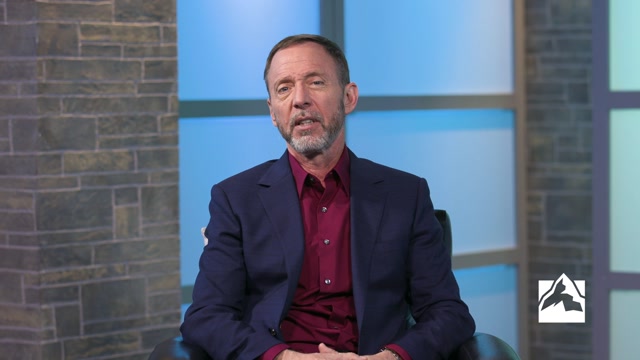
Chris Voss, former FBI hostage negotiator, identifies the biggest mistake negotiators make.

Chris Voss, former FBI hostage negotiator, identifies the biggest mistake negotiators make.

I had just begun a coaching assignment with the CEO of a global company and was really excited to find out more about this leader. She had been heralded in many circles and had an impressive background, and the curious psychologist in me wanted to know more about how she worked and how she had accomplished all she had.
So, I began by interviewing her direct reports, and I quickly encountered the first surprise of the project. Consider this:
I sat down with her marketing VP, Ryan, and began by saying, “So, tell me about Leah.”
“Don’t get me started,” he said. “I have worked around the world in this industry for 30 years and have met them all. And without a doubt, she is the best boss I have ever had. Hands down.”
“Wow,” I said. “That’s really saying something. I have read your history, and you have worked for some really good ones… real icons.”
“I know,” he replied. “But no one comes close to her.”
“So, tell me why. What is it about her that makes you feel that way? What does she do that is so much better in the way that she supervises you?”
“Easy,” he said. “It is the freedom she grants. She tells me the target, what she wants the outcome to be, and is really clear about the results she wants. And then (as he leaned forward for emphasis) …. she gets out of my way and lets me do it. I love it! I am free to do what I do best, and I love getting results for her.”
So, chalk one up for trusting your people, empowering them, giving leadership clarity, resourcing them well, and letting them be the smart people you hired them to be. It was not rocket science, but in some ways, often rare. Leah had the quality of making him feel free to perform, letting him have the autonomy that high performers need to have. She trusted him.
Then came the surprise….
I went into my next interview, and it was with Jason, the COO. A no nonsense guy, I expected him to praise his new boss since in similar fashion. But I was shocked. When I asked him to tell me about Leah, he said…
“There is no other way to say it. Without a doubt, the worst boss I ever had. She is absolutely horrible. The board is asleep at the switch…she should be fired.”
I was speechless. He was not a nutcase. In fact, he also had a stellar record. But he was giving me the direct opposite description that I had gotten from Ryan. I had to ask, “So tell me why?”
“Because she gives me no direction and leaves me out to drift at sea. She tells me what she wants, and it is like I never get anything close to direction from her along the way. She totally abdicates her leadership and leaves me out to dry,” he lamented, and with some pretty discernable scorn. “She just does not help me to do my job.”
Wow. Wow. Wow.
Same CEO…. same boss….one person scores her to be a 10 and one is chanting “fire her today.” What is the difference?
How are we to understand this dynamic and what can you learn from it?
The Issue
It is the most basic human conflict that exists…and for good reason: God designed it.
It is the conflict between having a relationship with accountability that supports and resources us—while at the same time having a relationship that gives us freedom and autonomy to perform using our own talents and gifts.
Connection vs. freedom. Some leaders get it wrong in one direction, being too connected and hands on, thereby crushing the very autonomy that is needed for their best performance. But other leaders get it wrong in the other direction…. they give so much autonomy that the person they are supervising feels like they don’t even have a leader or boss or supervisor at all. And then there is Leah, who gets described in both directions.
So, what’s a leader to do? Knowing the answer to that question is almost like one of the holy grails of leadership.
The answer is: it depends.
It is a tough dance. Here are a few tips to get this right:
God has designed the human race to have an ongoing dynamic tension of:
It is a “both/and.”
One of my favorite verses is in Genesis where God told Adam to name the animals. As supervisor, God defined the outcome, the results that he wanted. And he let Adam use his gifts and brain to figure it out.
God formed every beast of the field and every bird of the sky, and
brought them to the man to see what he would call them; and whatever
the man called a living creature, that was its name. (Gen. 2:19)
What incredible freedom, and can we say delegation?
I love that phrase: “to see what he would call them.” God was relishing in the freedom that He gave Adam do his job in his own way. God set the outcome He wanted and set Adam free to deliver that outcome.
Do you have a Ryan? Or a Jason? What feels like freedom and empowerment to them vs. detachment and abdication or abandonment?
Remember: What feels like empowerment to one person is abandonment to another. What feels like coaching to one is micromanagement to another. So, find out who this person is. Sit down and have an ongoing conversation.
Ask, “What do you need from me to succeed? Let’s get on the same page as to what success is, what the outcomes we want are to be, and then let’s talk about how much or how little input you need from me along the way. I want to help you get there, so tell me how much contact, coaching, structure, feedback, and the like you want and when and how you want it.”
Setting mutually agreed upon expectations on how to best serve the person you are supervising is one of the best steps you can take to make it all work well.
Always be asking and re-asking, “Are you getting from me what you need to get the results we agreed upon? What can I do differently? More input? More freedom to make more decisions and execute? Give you more control over resources?”
You will not always agree, but you will making sure that you are not having very different expectations as were Ryan, Jason and Leah. You will be on the same page, and able to adjust.
Ultimately, Jason and Leah were not a good fit. He needed more “handholding” than she wanted to provide. She wanted someone who could take direction and deliver. They were not fit for each other, so they parted ways. That’s ok at times.
There is no black and white answer. I have seen other situations where the “Leah” involved had to adapt to giving more connection and when she did, the “Jason” thrived.
Leaders have to be open to adjusting and learning from each other. That is what good teams and relationships do. We make each other better. Iron sharpens iron.
In sum, one of the greatest leadership dynamics you can be aware of in supervising is the knowing the dynamic tension between connection vs. freedom with your supervisee.
When you get that right, you will be leading like God designed us to thrive. Give people the resources they need that match their talents, empower them and walk alongside them to coach and correct when needed, but, let them “do their thing” to get the mission accomplished that you have both signed up for.
And remember, not everyone is alike!
Cheers,
Henry
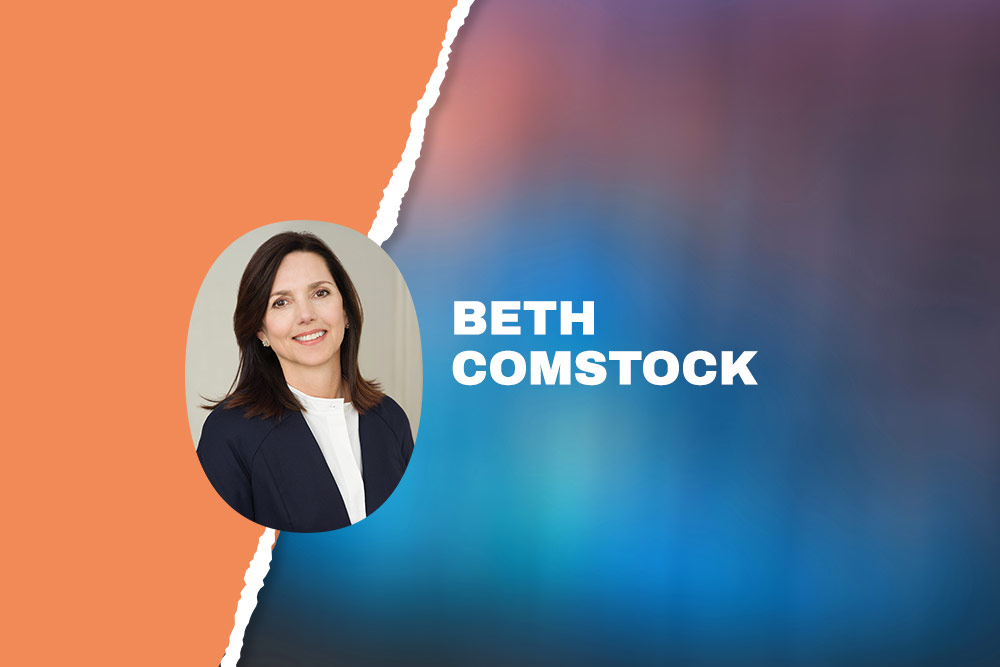
It is an honor to announce that Beth Comstock, one of the most influential business executives in the world, will be joining us for #GLS20! She will be sharing hard-won leadership lessons from her book, Imagine it Forward: Courage, Creativity and the Power of Change.
Beth Comstock is one of the most influential female business executives in the world. So, it’s hard to believe that the former vice chair of General Electric is a self-proclaimed introvert.
In fact, Comstock, author of Imagine It Forward, in a recent interview at the Ascend Summit in New York City, said that it took a lot of time and practice to gain the confidence she needed to succeed.
Here are five of Comstock’s tips for any entrepreneur who is trying to come out of their shell.
Comstock said that as an introvert, it didn’t come naturally for her to take risks, such as asking for things or pitching new ideas.
“Give yourself permission to do these things,” said Comstock, who over her 27-year-long career at GE oversaw the founding of Hulu and implemented a green technology business strategy.
“I think it’s hard because [women have] been conditioned this way socially. Once you’ve given yourself permission, get out there.
For Comstock, it went against her natural instincts to “piss people off,” but she had to in order to get ahead. Women are not used to being “at odds” with others, she said, but it’s often a necessary casualty.
“To be able to ask for things—if you want to be an innovator and make change, which is what I pushed my career to be, it meant I had to piss people off. It meant I had to upend the status quo.”
Sometimes it can be a lot easier to put yourself out there if you incorporate your team. Most entrepreneurs can’t operate without one.
“Don’t just make it about you, make it about the team,” said Comstock. “It’s a lot easier to get out there that way.”
Resilience is a muscle that needs to be toned. In Comstock’s career, sometimes “no” has meant “not yet,” and she has been forced to try again and again.
She recounted a story about approaching NBC CEO Bob Wright with a pitch for the Experience Store.
“The head of network said, ‘no’ the first time,” she said. “The team took three times to sell. In the end, Bob said, “I wanted to say ‘no,’ but you made it so darn hard to say ‘no,’ so I’m saying ‘yes.’ And I realized he was also testing me, and he was right because the idea got better. Resilience: if you want to make change happen, it’s up to you to keep going back.”
It’s easy to take negative feedback to heart, but Comstock said you need to take it as is—and it can often be helpful.
“I would have been too afraid to ask this before, but now I ask people to tell me something I don’t want to hear. Because I usually need to hear it,” said Comstock. “It gets you the data you need. You don’t have to agree with everything. Just listen to people. Often in that feedback you’re getting validation. So, don’t take it personally—but sometimes you need to ask for that personal feedback so you can get better.”
This article originally appeared on NBCnews.com.
Join Beth Comstock and other 15 other world-class speakers for The Global Leadership Summit on Thursday and Friday, August 6-7, 2020. Get ready for your two-day infusion of fresh ideas, actionable concepts, leadership principles and heartfelt inspiration from a world-class faculty at a location near you!
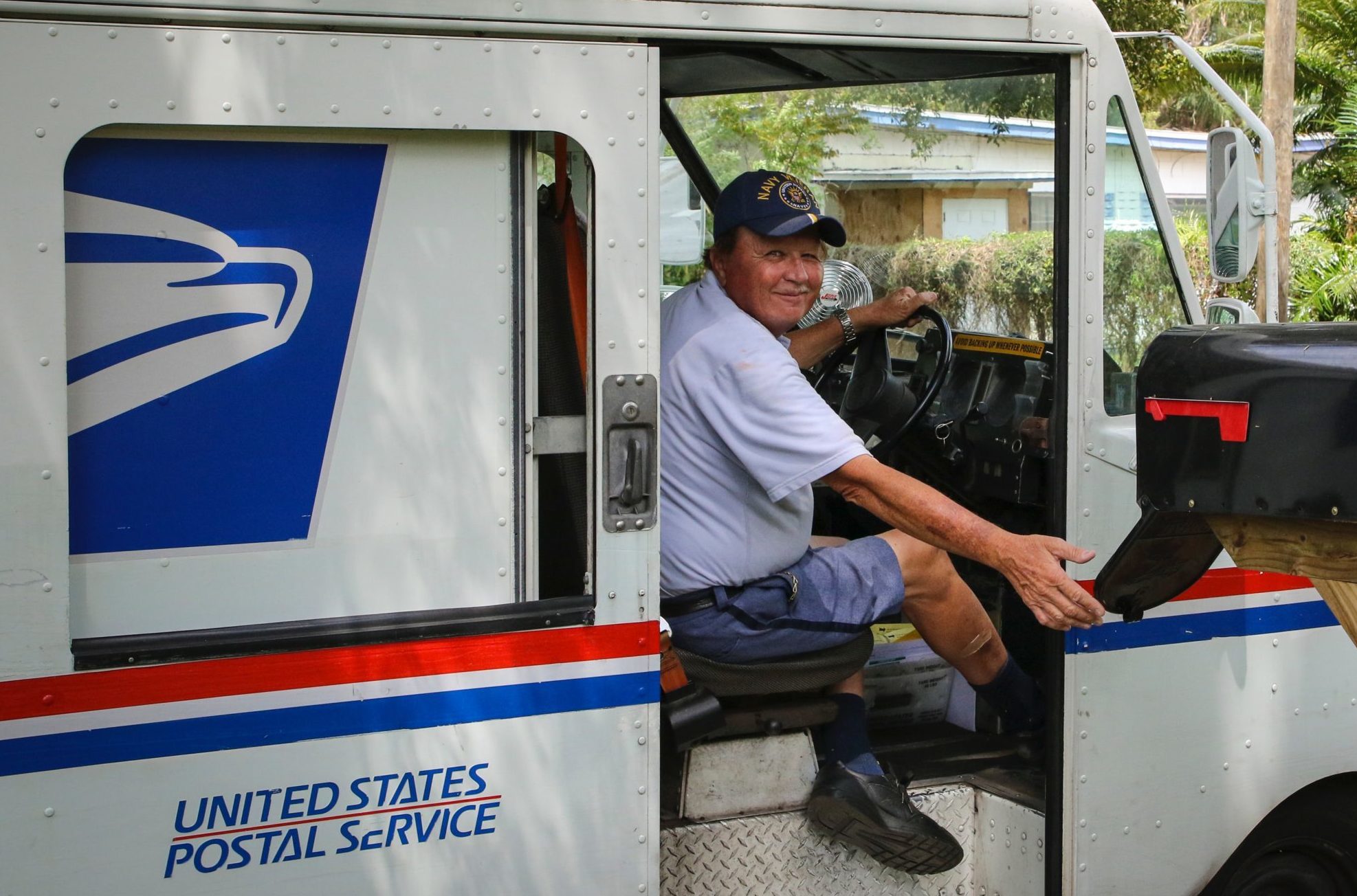
Essential workers across the globe have stepped up in incredible ways over the last several months of uncertainty, change and crisis. They impact our families, inspire the next generation and invest in our communities in the most crucial ways. Whether they deliver your mail, bag your groceries, provide you medicine, care for the elderly or provide you healthcare, their leadership gives us hope. In 2020, this has become more evident than ever.
For one week only, July 23-30, when you buy a ticket to The Global Leadership Summit you’ll have the opportunity to buy an additional ticket for just $79 you can give to an *essential worker who has made a difference in your life over these last few months.
This is your chance to give back and give them something to recharge and encourage them, letting them know their leadership and influence really matter!
To take part in the Essential Worker Buy-One-Give-One promotion from July 23-30, buy your ticket(s) today and select an additional ticket to give away at checkout!

At the Global Leadership Network, we believe influence is at the core of leadership—wherever you are, you have influence.
Whether you are in business, ministry, non-profit work, education, healthcare, military, government, running a household, a student or even serving time—your leadership matters now more than ever. Only you can bring your strengths, ideas and passions into a world that is hungry for positive transformation.
This is why we gather for The Global Leadership Summit!
Get ready to learn from some incredible leaders and influencers from various industries and backgrounds! Each guest faculty member was thoughtfully chosen to speak from their areas of expertise and experience—and truly, there is something to learn from everyone.
What are you most hoping to get out of your experience at the Summit this year? Let us know in the comments!
My hope is that you come away from the Summit with fresh ideas, actionable concepts and inspiring leadership principles to apply right back into your everyday life at work, home or in your community as you seek to use your influence for good.
See you at the Summit!
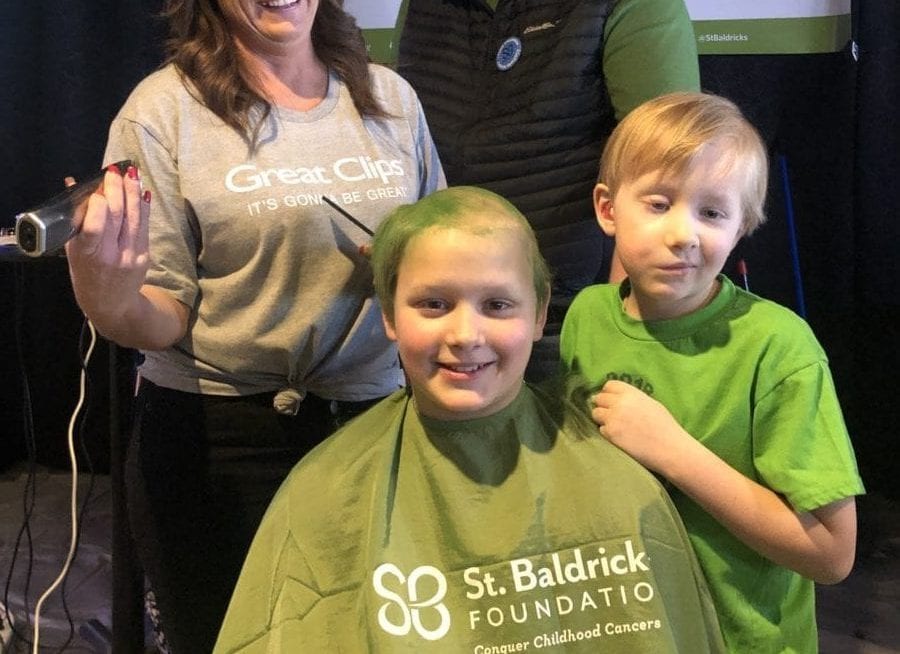
At the Global Leadership Network, we believe that youth is our future. And in order to build the future for the better, we need to invest in the next generation of emerging leaders who are and will be the change makers of that future. Because of the value we hold for our youth, The Global Leadership Summit offers a reduced Emerging Leader rate of $49 for kids ages 11 to 18 to attend.
In 2019, one of those emerging leaders was a young 12-year-old named Noah Goodall who was invited by his parents, Simon and Stephanie, to join them at the Summit when they heard about this opportunity.
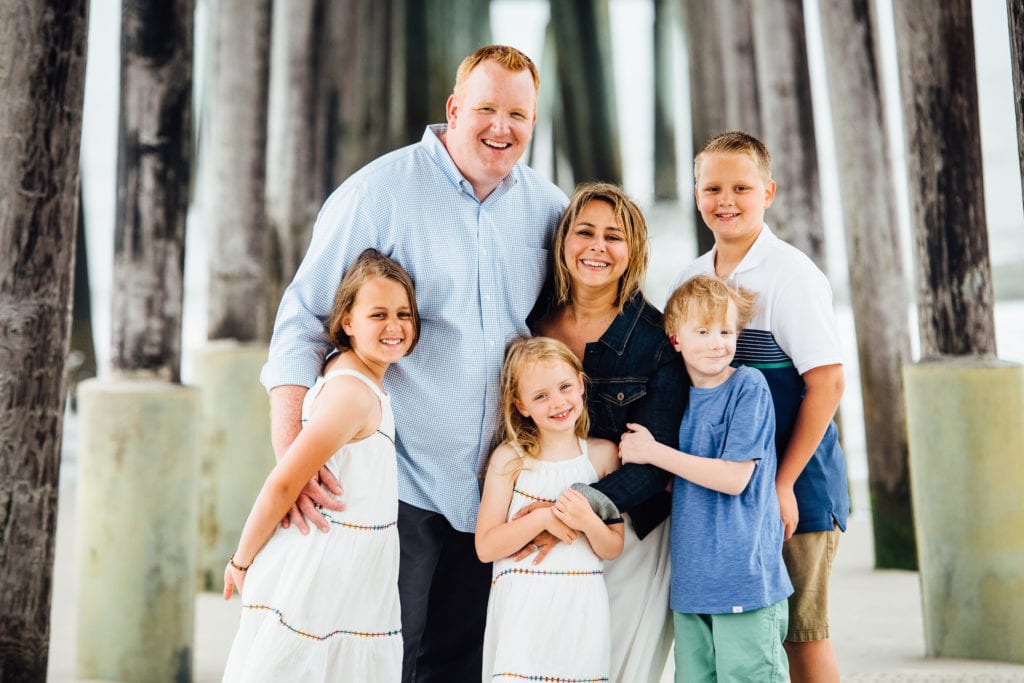
The Goodall Family
“When I got the email about the Emerging Leader rate, I thought, my son Noah is 12 now. Maybe it’s the time to ask him if he wants to go,” said Simon, longtime attendee of the GLS and husband to Stephanie. “So, I asked him if he was interested. And he was so excited, he bounced up and down.”
“We’ve seen a lot of early leadership qualities emerging in Noah and I thought this would be such a great opportunity to give him some strong leadership building blocks,” said Stephanie. “Noah is finding his passion and learning to dream. He has a lot of enthusiasm and compassion, and those are good beginning leadership skills. So, the Summit was an opportunity for him to learn how to bring people along, share vision, motivate people and build his confidence.”
“I knew about the Summit already because my parents talk about it a lot, and it sounded interesting!” exclaimed Noah Goodall, Simon and Stephanie’s 12-year-old son, and oldest of their four kids.
Effort matters, and it’s also about taking a leap of faith, doing things, and giving it to God around the outcome.
“Being invited to the Summit felt like a once in a long while chance,” said Noah. “I thought maybe sitting for two whole days at a conference might be boring. My mom and dad said I could go to the Summit for at least one day, and if I didn’t like it, I could skip the second day.”
“I was surprised by the people who spoke. I thought they would be boring, but they were really exciting. I could understand what they were talking about because they made it really clear and interesting.”
“I think God gave me information through the speakers and gave me a way to apply the knowledge in my life in many different ways—like remember to be nice to other people, don’t be afraid to take risks. Like with that new kid in your classroom—maybe you don’t know him yet, but you have to go up to the kids who are left out or alone. You have to go up to them and make friends. It made me see people for who they are, not what others just think they are.”
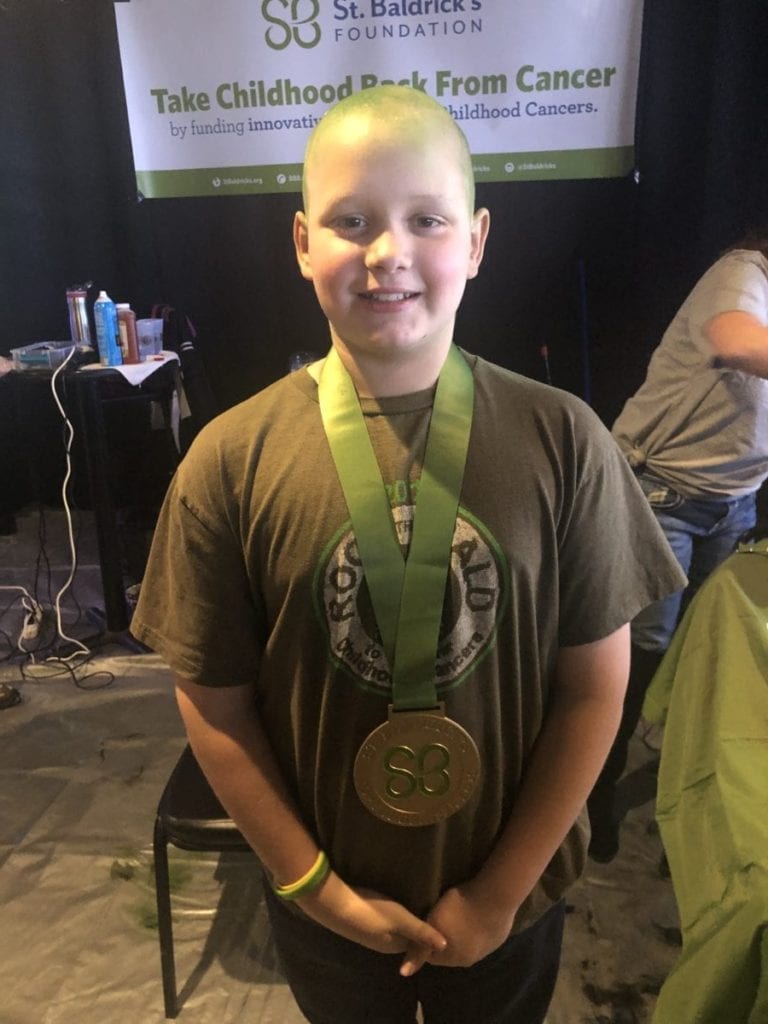
While Noah is only 12, he has a vision for the kind of leader he wants to be when he grows up.
“I don’t want to be a leader that’s mean, who tells everyone what to do,” said Noah. “I want to lead other people to success. I want to be a leader that’s caring—someone who says, Hey, you’re struggling? Let me help you. I want to teach others their own leadership skills. I want to lead people to make a positive difference in the world. It’s very easy to make a negative difference in the world, but I want to lead people to make a positive difference.”
“I admire leaders who are kind and hold people accountable. They have to focus on where they are now and the outcome at the end. Good leaders are also those who people can come to when they’re scared or struggling because they’re nice.”
“I would definitely encourage other kids to at least come to one day of the Summit!” said Noah. “They should just give it a shot, because it’s amazing and there are so many different people to learn from.”
“If you’re a follower, you should still go, because everyone needs leadership skills. Eventually, you’re going to have to figure things out. I mean, you could live in your parent’s basement until you’re 40, but you can’t do that forever. Eventually you have to move out—and you need to be able to lead yourself. You need leadership skills. You could be the one blowing dandelions in the wind, or you could be the one to step up and take charge when people need you.”
“Some people are really smart, but not really good leaders. But if we can get smart people to be good leaders, then the world will be a better place. Smart leaders change the world. If we’re going to go colonize on Mars, we need people that are smart leaders! If you go to the Summit, you’ll learn so much from amazing leaders who’ve learned so much in their careers and lives, and they want to share, and they’re willing to help you!”
Noah is a young emerging leader with influence beyond his years, and with what he’s learned at the Summit, he’s built up more confidence to continue following his driving passion to support families going through pediatric cancer. This passion hits close to home with his brother Jonah fighting pediatric brain cancer. Over the last couple years, starting at the age of 10, he’s spoken at events and in front of his school to raise money for pediatric cancer research.
I got passionate about fundraising for pediatric cancer research because my brother Jonah was diagnosed with brain cancer.
“I got passionate about fundraising for pediatric cancer research because my brother Jonah was diagnosed with brain cancer,” Noah explained. “I felt like I needed to make a difference. So, my mom came up with the idea about maybe getting involved with St. Baldrick’s cancer research. And I thought, Ok, I’ll give this fundraising a shot.”
“I set my first goal at $550 dollars. My mom helped me with a post on Facebook, and then overnight we raised $700! And I thought, we can do something more! So, I emailed people and wrote letters, and we raised $11,000! We did the fundraiser again last year. We got more creative with Facebook advertising, and I got my siblings involved. I reached out to a bunch of businesses too. More and more people were seeing our videos and donating to the research. It was amazing—we raised $20,000 for pediatric brain cancer research!”
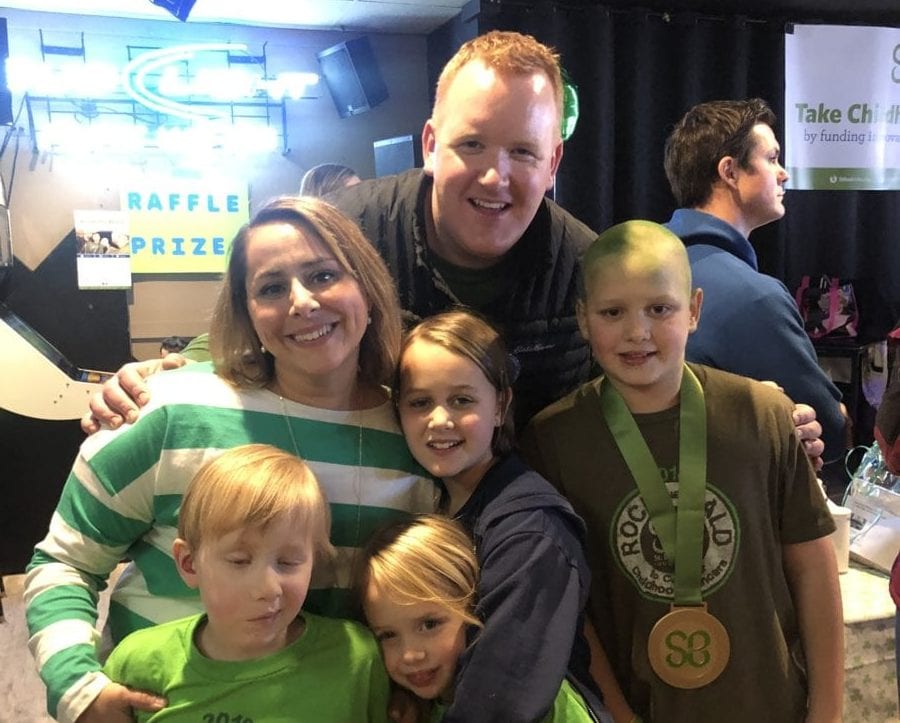 It all comes down to his love for his brother, and not wanting other families to experience the same struggle their family has gone through. “I love my brother Jonah,” said Noah. “I love how active he is and funny he is. And I love his energy. He’s always happy, except for when he’s sick. I don’t like his walker. My dream for Jonah is that he would no longer have a need for his walker. It’s so important to me because I really don’t want other kids going through what happened to Jonah, and I don’t want other families going through that either. It was a really tough time. It wasn’t fun at all.
It all comes down to his love for his brother, and not wanting other families to experience the same struggle their family has gone through. “I love my brother Jonah,” said Noah. “I love how active he is and funny he is. And I love his energy. He’s always happy, except for when he’s sick. I don’t like his walker. My dream for Jonah is that he would no longer have a need for his walker. It’s so important to me because I really don’t want other kids going through what happened to Jonah, and I don’t want other families going through that either. It was a really tough time. It wasn’t fun at all.
“Over spring break in 2019, we went to Washington DC and went to our senators to present to them and ask them to make a difference by putting more money towards pediatric health. Our whole family said something and talked about our story. Me and Jonah did most of the talking. I told them about all our challenges, and spending weekends at my brother’s hospital bed.”
“Noah amazes me with his level of confidence,” said Simon. “For a fundraiser this year, he ended up shaving his head! It was him and a bunch of adult fundraisers, and he turned out to be the top fundraiser! He spoke in front of the whole group of about 75-100 people.”
“And yes, he has confidence, but there’s always that self-doubt that everybody struggles with, so the Summit can help him learn to work through that. Effort matters, but it’s also about taking a leap of faith, doing things, and giving it to God around the outcome. And that’s ultimately why we invited Noah to the Summit.”

Join us at The Global Leadership Summit for Decision Points: One-on-One with President George W. Bush* where he’ll share what he learned about leadership while navigating one of our country’s most difficult eras.
Join our 15+ world-class faculty on August 6-7, 2020, as they dive into relevant topics like:
*Please note: This session is closed to the media and will only be available to attendees on August 6, 2020 within the U.S and Canada—it will not be available for viewing on August 7, 2020 or at any point during the seven day video-on-demand period.

Here’s what we learned about The Global Leadership Summit impact from a recent independent survey* of attendees:
I believe the Summit is the most accessible and applicable leadership opportunity I have ever attended. –Tracey Beal, Founder of School Connect, Read the Full Story >>
Join the thousands of people from every walk of life who have stepped to new levels of leadership effectiveness.
This year marks the 25th anniversary for The Global Leadership Summit. Each year, people like you experience fresh, actionable and inspiring teaching from world-class speakers and they overwhelmingly report positive outcomes!
Bonus: When you register, you will also get exclusive access to all the available talks on the 7-day Video-On-Demand stream. This will allow you to re-watch your favorite sessions or catch up on sessions you miss.
*Research data from a 2017 survey is provided by the third-party firm, Excellence in Giving.

The Summit has been a great source of encouragement and support as a Superintendent. At the Summit, when I listen to the speakers tell their stories about overcoming obstacles, strengthening leadership and reaching out to others, I sit there and think, They’re talking directly to me. I take back so much information.
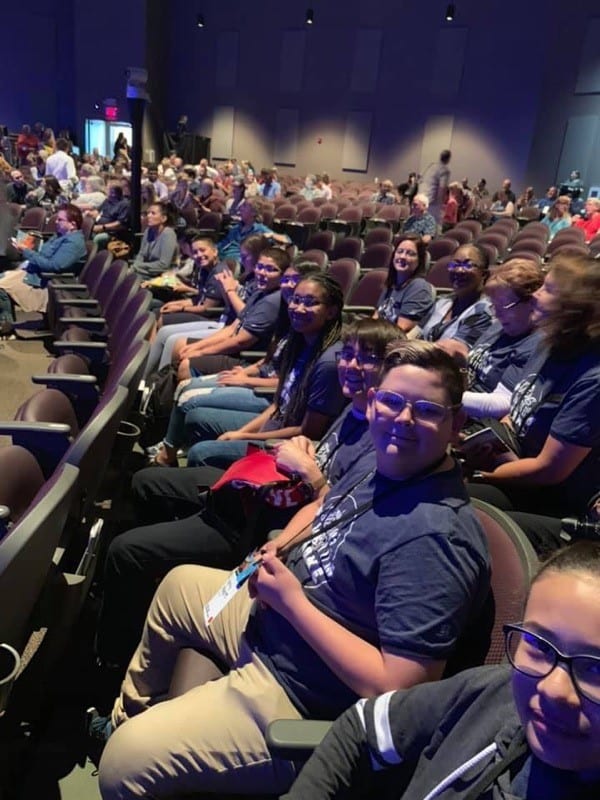 Through the Summit, I’ve met some amazing people, who’ve become an important part of this movement for students. I also bring my 8th grade superintendent council and ask for their feedback, and hear their ideas for what we’re going to do this year through the program.
Through the Summit, I’ve met some amazing people, who’ve become an important part of this movement for students. I also bring my 8th grade superintendent council and ask for their feedback, and hear their ideas for what we’re going to do this year through the program.
There is so much to this role as superintendent, and you never know what’s going to come up, so it’s important to be prepared. We need strategies and words of wisdom to help guide us in everything we do.
Go to the Summit for your growth, because what you bring back to your company or district is amazing. You’re going to be uplifted and re-energized in your role. And we all need that. No matter how good you are, you run out of juice sometimes. What is the Summit? It’s 16 hours of your year. You’re worth the time. You won’t regret it.
For me, what I’m able to bring back to my district is the opportunity to empower the lives of more students!
Many of our school districts in Arizona consist of people from low socio-economic backgrounds. There’s divorce, domestic violence, etc., and kids need a place to process that. With so much going on with drugs, harassment on social media, bullying, suicide and non-acceptance based on how you look, we need to do something to bring kindness and caring to each other and to our schools.
When I hear about the bullying and read about what’s going on I think, As Superintendent, am I truly making a difference in these kids? We need to do something above and beyond to help our students engage in something they will take ownership in and feel proud of so they will be the ones to take it throughout their school.
After a murder-suicide in one of our schools, two of my colleagues and I thought, Why don’t we do a conference for kids to teach them about bullying, harassment and suicide, and help them and bring some resources to end this.
We had people tell us it can’t be done. But “can’t” is not in my vocabulary.
We had people tell us it can’t be done. But “can’t” is not in my vocabulary. I grew up really poor, but I had a great family who believed I could do anything. So, it’s my turn to give back. With the career that I have chosen, I see so much. And we have to do something for this next generation.
We called the conference Speak up, Stand up, Save a life. In our first year, 1,000 people attended. Every police chief came. And every city declared January as “Speak up, Stand up, Save a life Month.” The second year, the president of Grand Canyon University opened up the facility, and 3,000 people attended.
Last year, word really got out. The capacity at Grand Canyon University is 5,000 and we filled the stadium! Fifty-six schools, and many districts were represented, and we actually had to turn people away.
https://www.youtube.com/watch?v=dHbQcuLonbA
We’ve already had six states reach out to us asking how to do this. So, we started building a tool kit of what people would need to put this together in their areas.
We started to develop tool-kits and programs through students. We ask students, What is going on? Why is suicide happening? Tell us what adults can do to help you. And the students come up with implementation plans and give us ideas. Then they go to their schools and develop an implementation plan with their counselor or other school leaders, and bring the message to all the students.
While academics are important, how your heart feels is just as important, if not more.
The students really adopted this program, and they love it. They’re starting speak-up clubs, creating their own skits, writing songs, developing raps, announcements, posters and murals. They involve the police or the PTO, and they’re taking the message to all the students. Based on the 56 schools, we have reached almost 400,000 students. One of the schools that has been involved claimed to have saved four lives last year.
Last year, there was a suicide in my district. When I first started this program, little did I know that I would be using all these resources as well. We have to help these kids navigate the world. While academics are important, how your heart feels is just as important, if not more.
Recently a parent met with me and said, I’ve been contemplating suicide for two years and then you started this movement. I came with my daughter, and I decided I need to live.
Adults need a venue where they can learn to work with their kids, who are dealing with these issues as well. We have an adult component to the conference that takes place when all the students are in a breakout session, and we give them strategies on how to handle these issues.
There is so much to this role as superintendent, and you never know what’s going to come up, so it’s important to be prepared.
We’re working with a lot wonderful people. We just became a 501(c)3. Our attorney is pro-bono, our accountant is pro-bono, our internationally renowned keynote speaker is pro-bono, and more people are saying, We need this. How can we help?
Let The Global Leadership Summit fill you up and encourage you in your leadership wherever you have influence. Imagine what might happen in your life! Join me for The Global Leadership Summit >>

Year after year, for more than 25 years, The Global Leadership Summit has convened an audience that strives to develop their leadership skills to lead positive change within their sphere of influence. Today, the Summit reaches hundreds of thousands of leaders in more than 124 countries.
To serve a community of leaders that spans across industry, faith, age, gender and geography requires an open mind and diligent research. We know in order to reach a diverse audience with the latest leadership wisdom requires a diverse faculty.
It is the humility, curiosity and desire to learn from anyone that makes the Summit audience unique.
At the Global Leadership Network, our desire is to provide our audience with the latest relevant resources from leading experts who provide fresh leadership insights, practical tools, actionable concepts and inspiration to help them lead change within their sphere of influence. This means our faculty lineup is a diverse group of ministry leaders, social scientists, non-profit leaders, business executives, entrepreneurs,healthcare workers,educators, authors, politicians, influencers and athletes, to name a few.
As our content development team connects with our faculty throughout the year leading up to our annual event, they focus on drawing out the leadership expertise our faculty brings to the table, no matter what industry or background they may be coming from. As a leadership conference drawing people from various backgrounds, we believe a business leader can learn new leadership skills from a pastor, and a pastor can learn new leadership skills from a healthcare worker, and so on down the line. It is the humility, curiosity and desire to learn from anyone that makes the Summit audience unique.
Indeed, our foundation as an organization is based in Christianity—this is not something we are shy about. But we also believe God reveals his truth in individuals who come from different backgrounds. As we continue to reach a wide range of leaders across the globe, we trust in God’s lead to meet people where they are.
Another factor many people don’t realize about our faculty decisions is that there is an extensive one to two–year research and vetting process that filters potential faculty through various groups of committees representing different backgrounds, industries, races and age groups before they are asked to participate. Ultimately, guest faculty are invited to speak based on proven abilities related to their field of experience. Additionally, our decisions to invite any of our faculty members do not consider religious affiliation a reason to either exclude or include anyone.
At the Global Leadership Network we value being open to hearing from individuals who have extensive experience in areas of their lives we can learn from—we can learn from even those we may not be in complete agreement with.
This incredible community of leaders is multiplying positive change globally, and we couldn’t be more honored to be a part of this network.
We also believe the willingness of our faculty to share their expertise enhances the learning process and stretches attendees in ways that otherwise would not happen. Over the years, we have found that such interactions have strengthened our convictions, established new relationships, and at the same time, provided meaningful and memorable learning moments.
Inherent in opening ourselves to the value these leaders can bring, is the risk that they would say something which does not align with the beliefs and values of our audience. In those instances, we are confident our audience has the maturity, wisdom and discernment to be open to learning moments that might take them out of their comfort zone to experience a new perspective or discover something valuable they can apply in their context they hadn’t thought of before.
What started as a conference whose primary audience consisted of church and ministry leaders, the Summit has grown to reach people in every industry, including business, government, non-profit, healthcare, education, social services and even corrections. Our audience now includes more than 90 Christian denominations as well as multiple faith backgrounds in more than 124 countries and 1500 locations.
This incredible community of leaders is multiplying positive change globally, and we couldn’t be more honored to be a part of this network.
“We welcome and encourage comments on this site. There may be some instances where comments will need to be edited or removed, such as:
If you have any questions on the commenting policy, please let us know at heretoserve@globalleadership.org”
Recent Comments